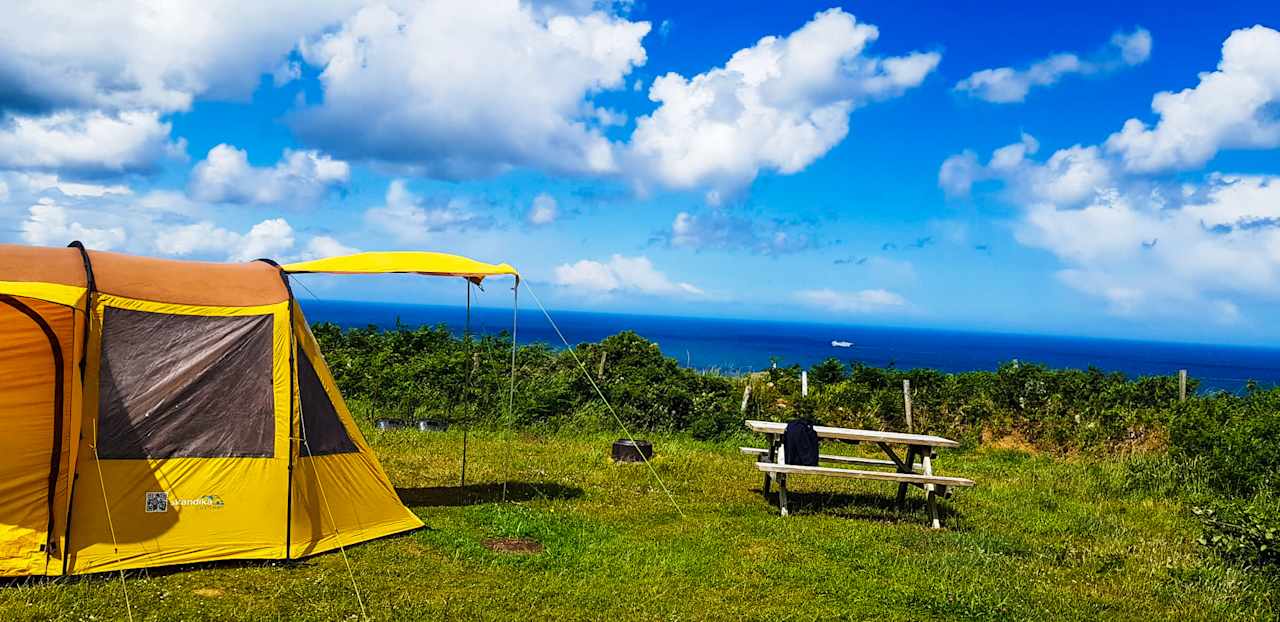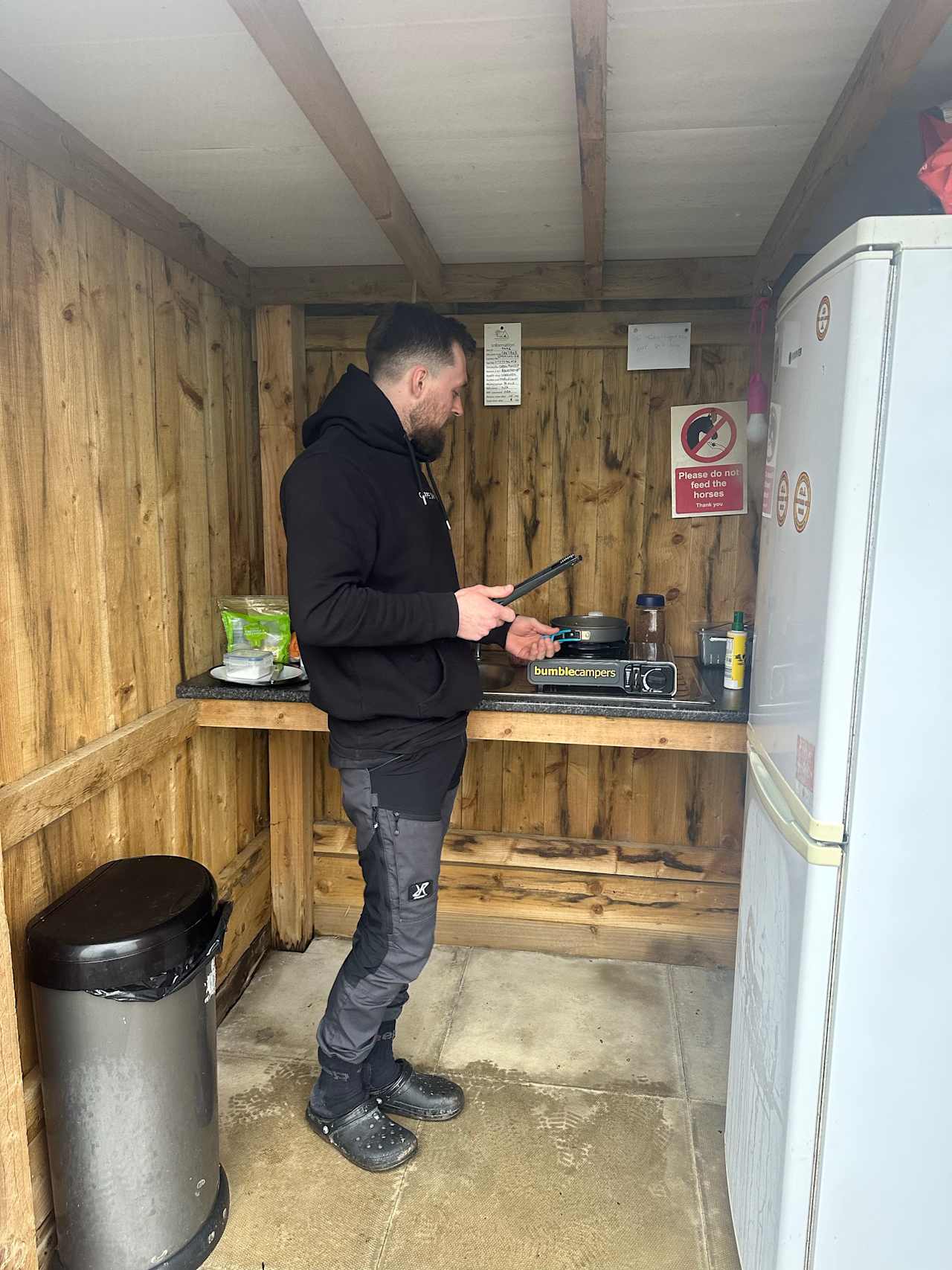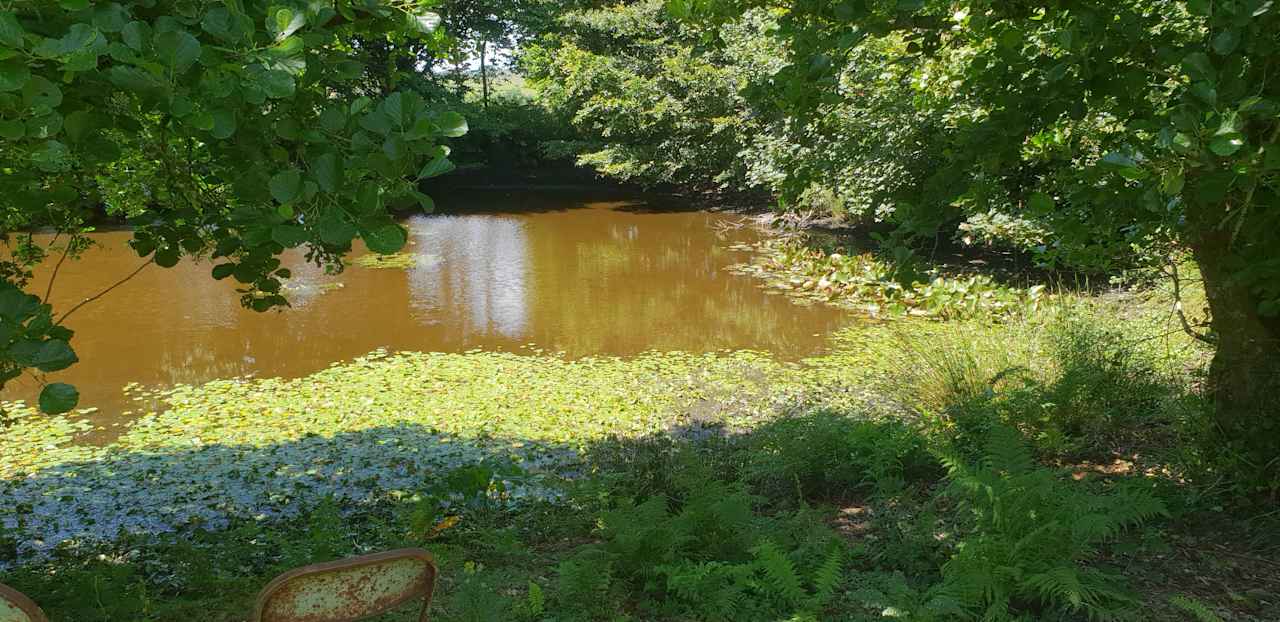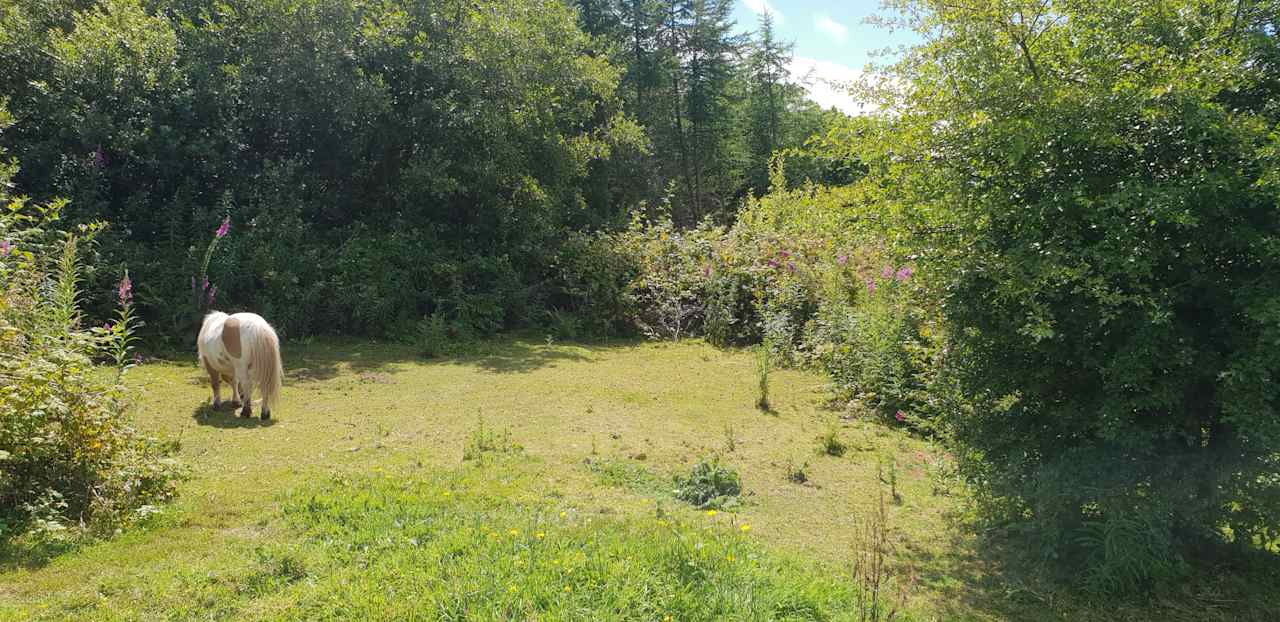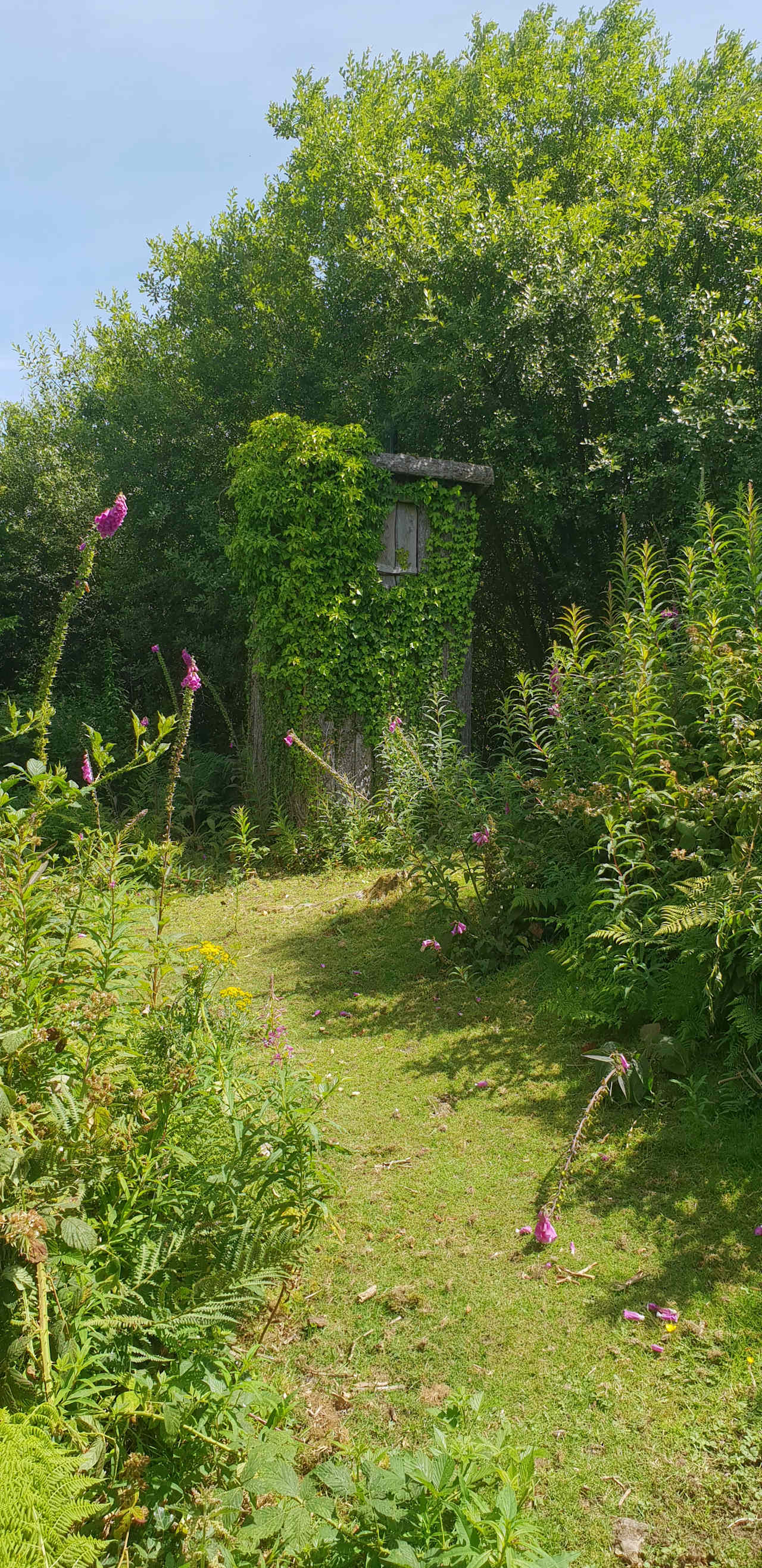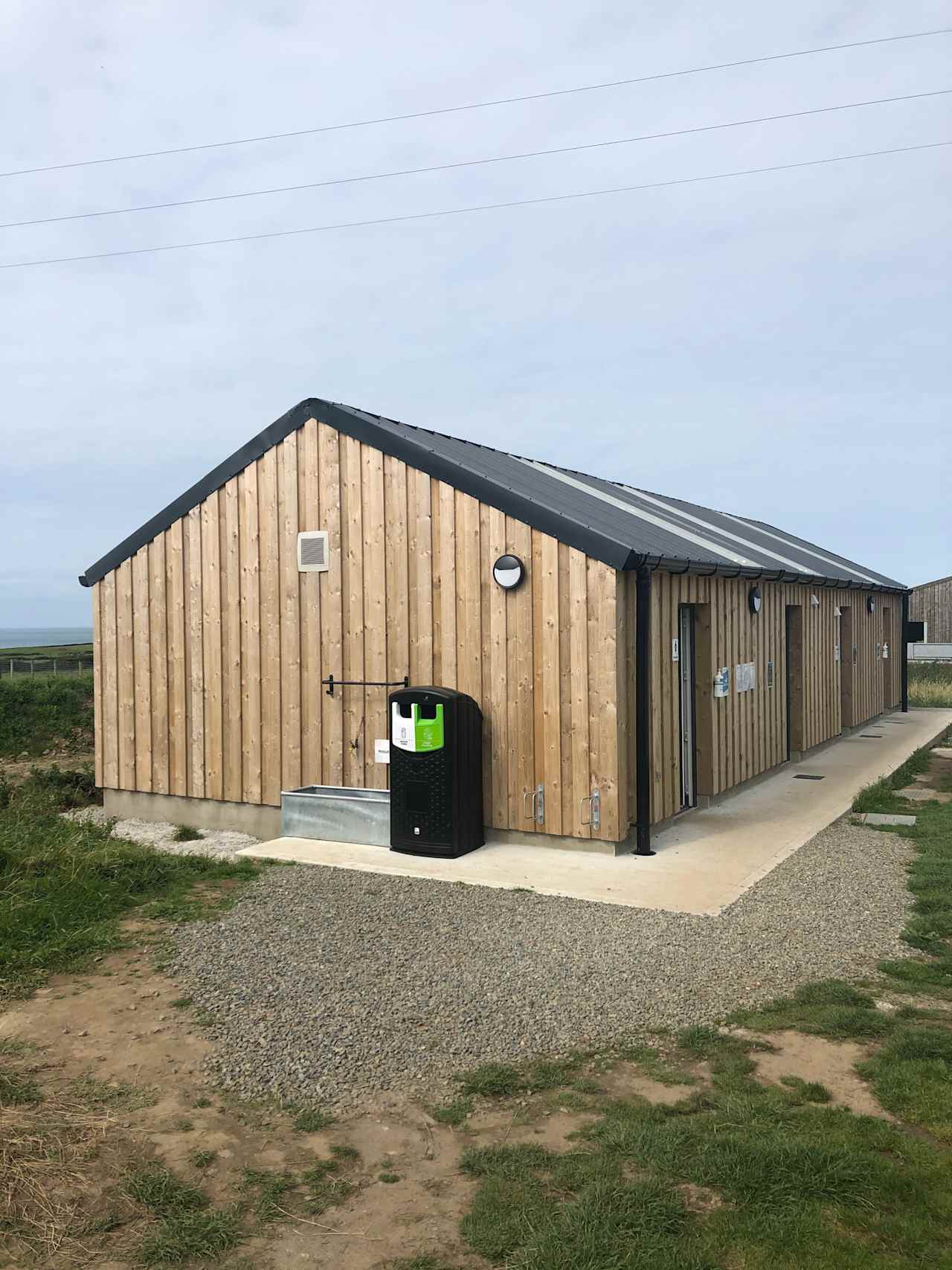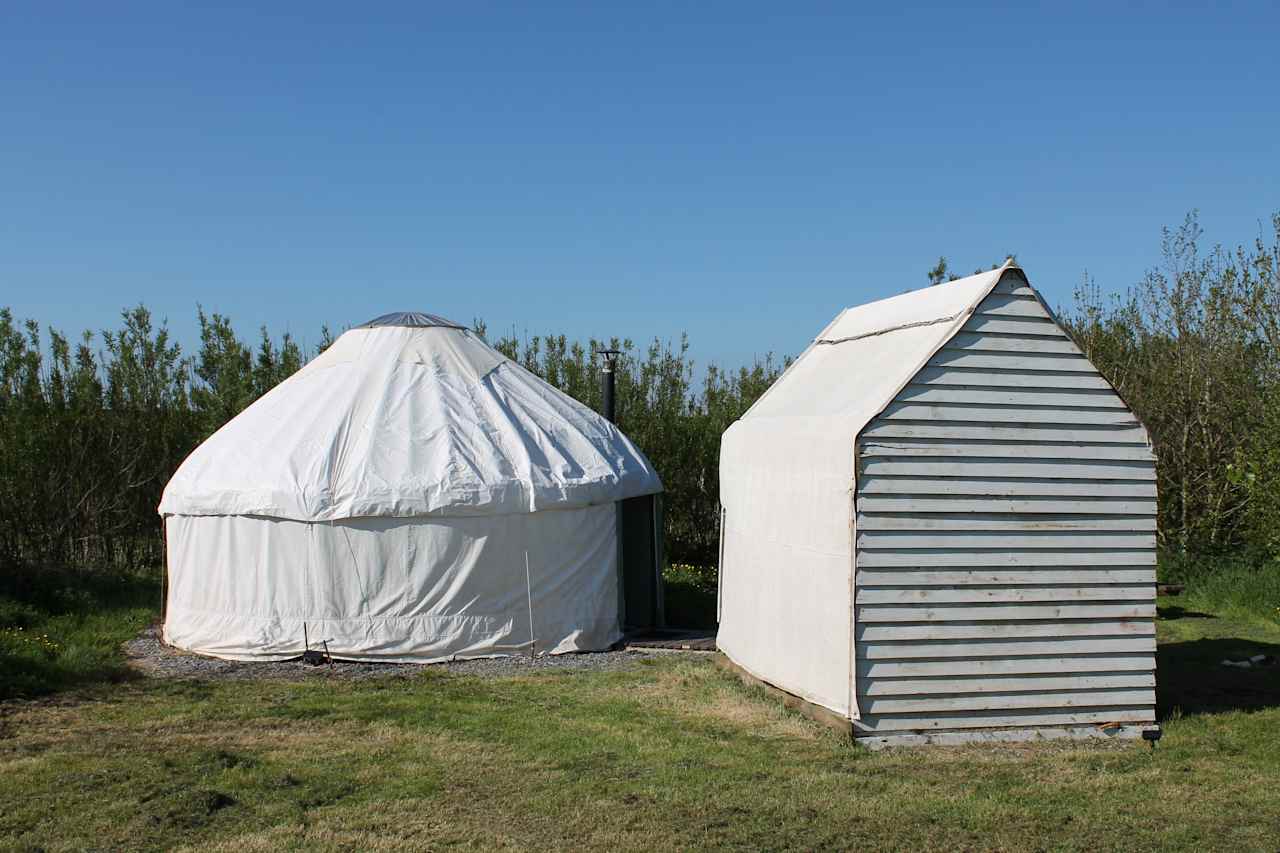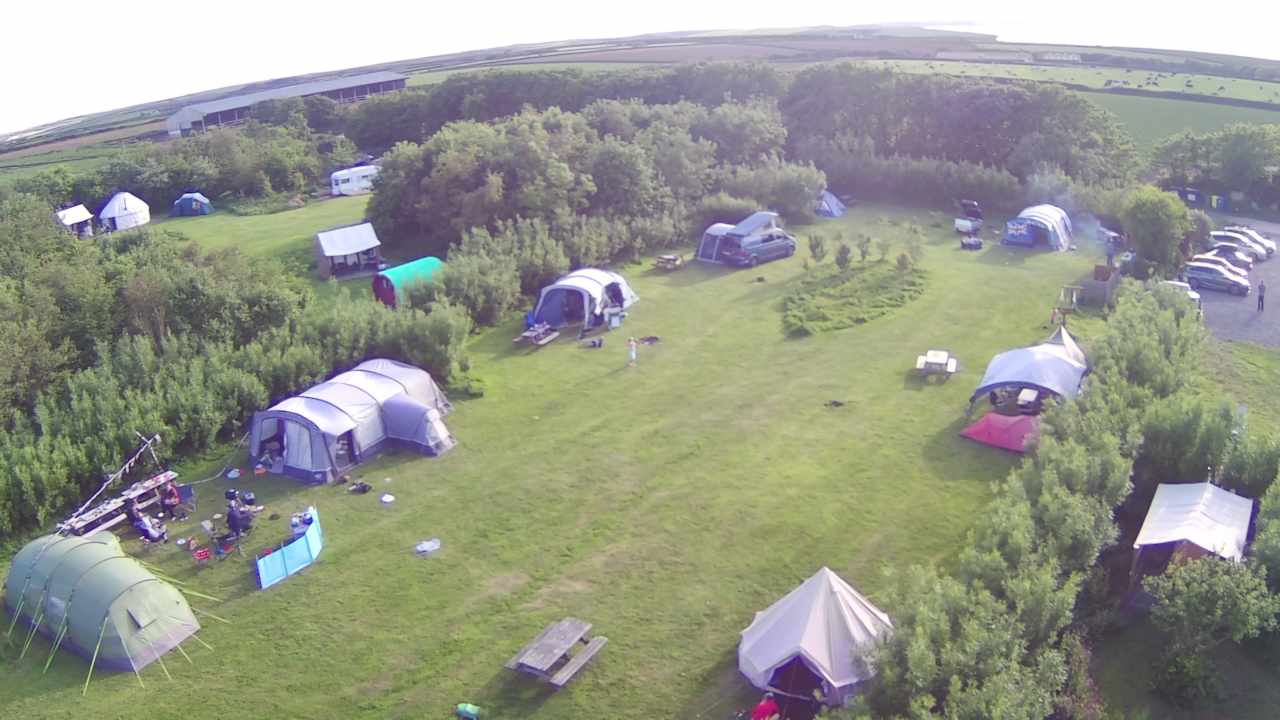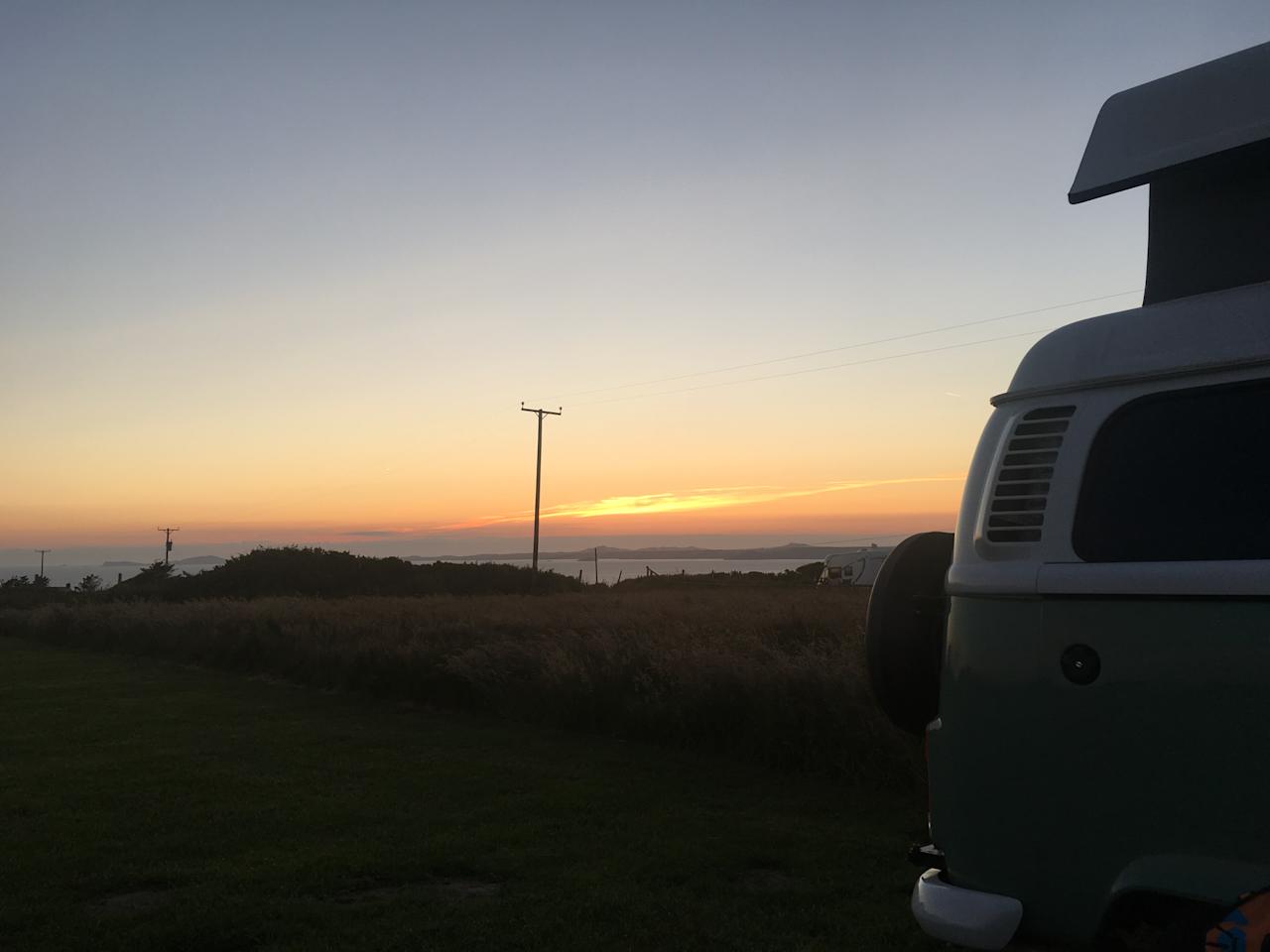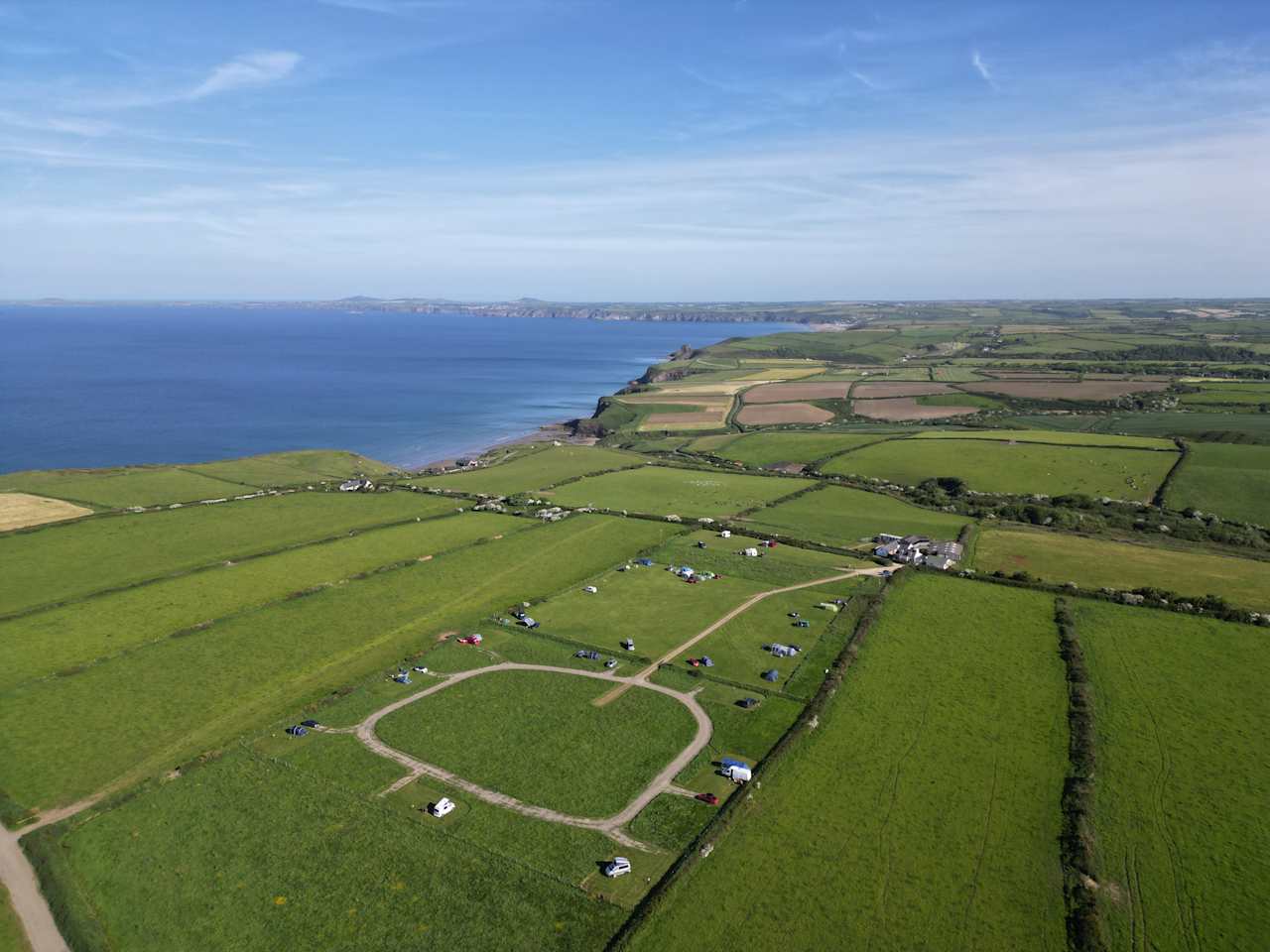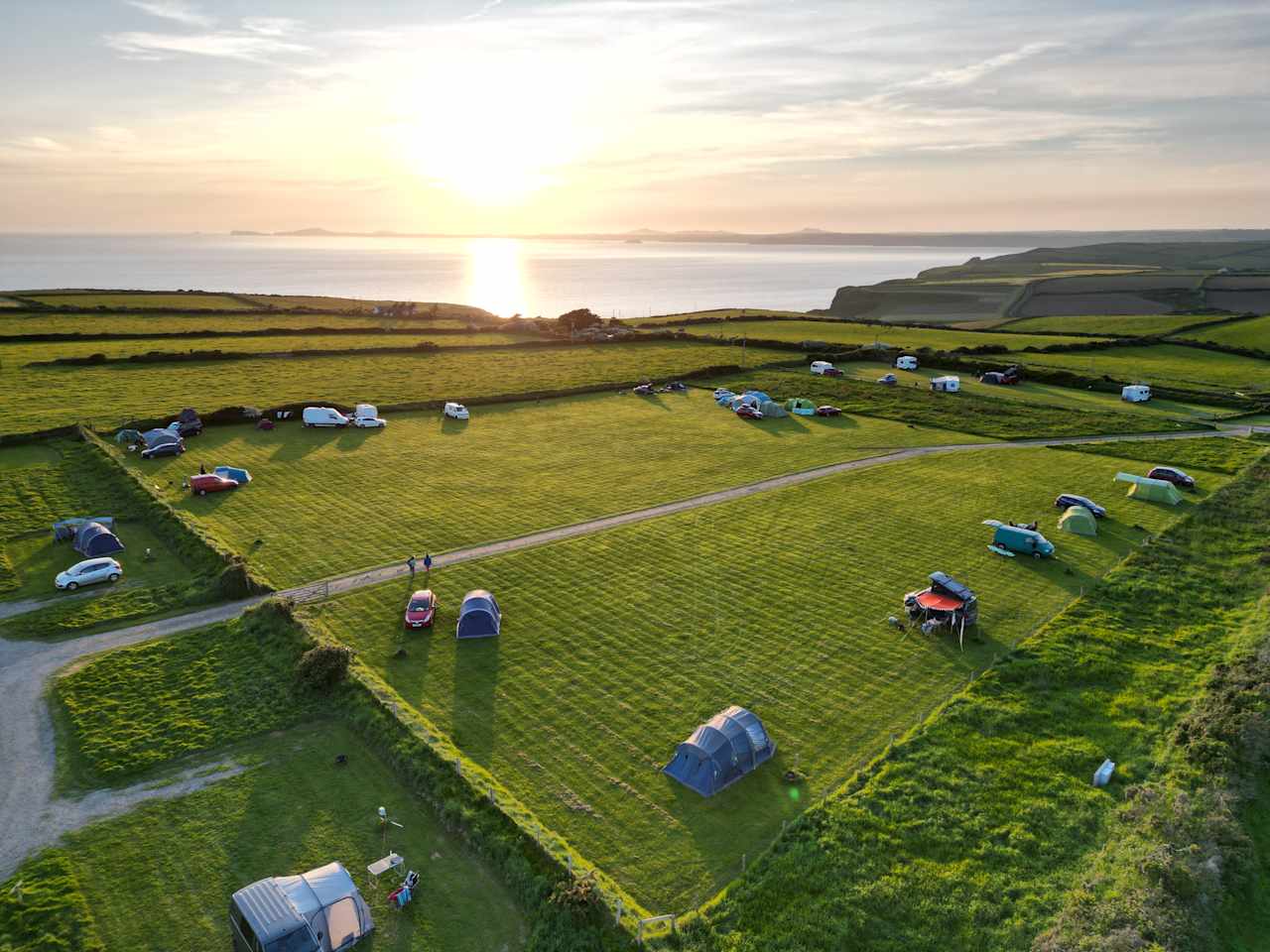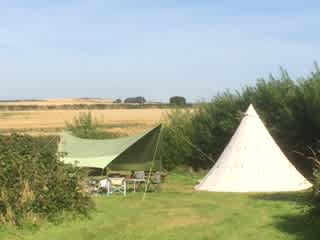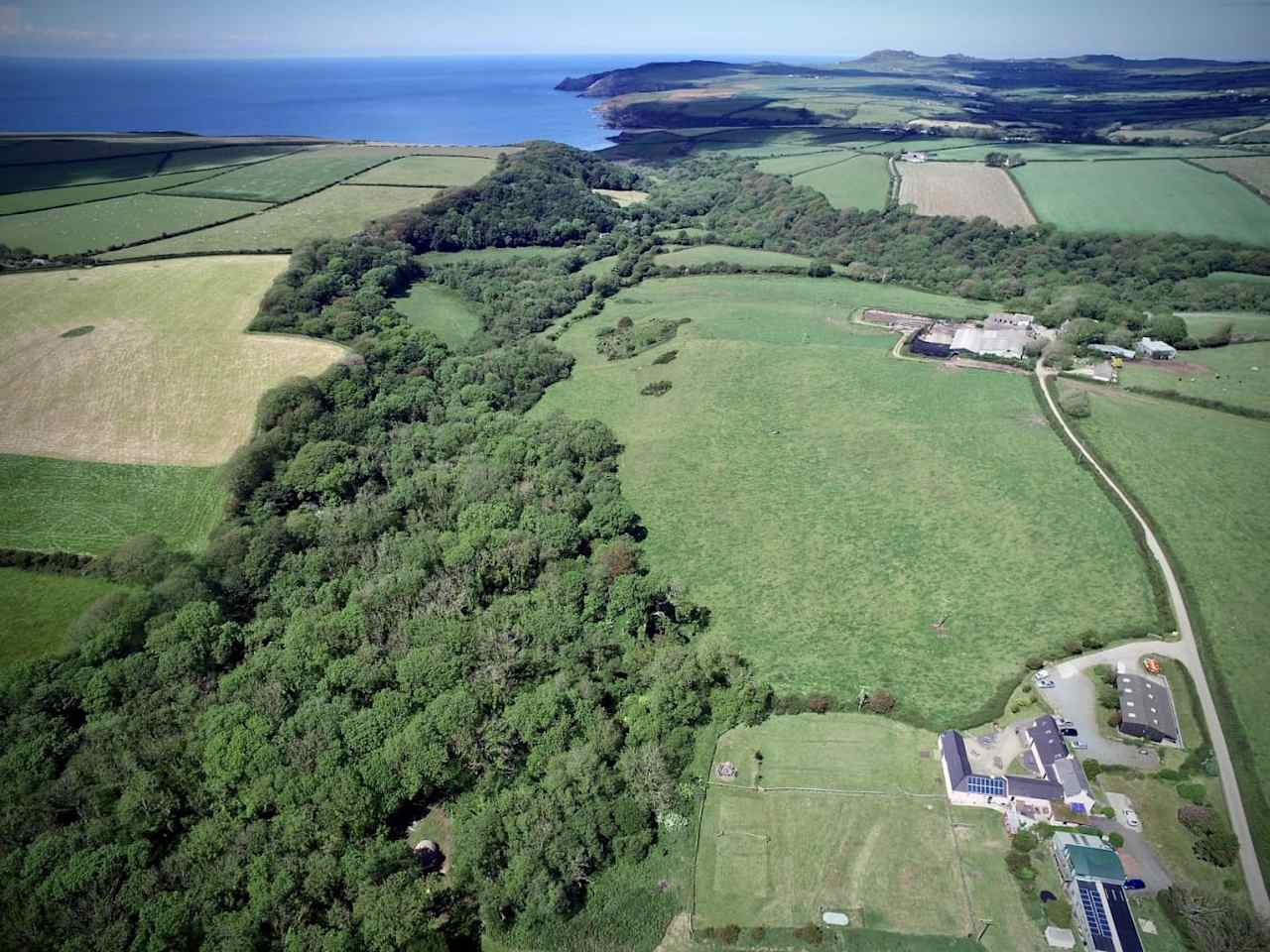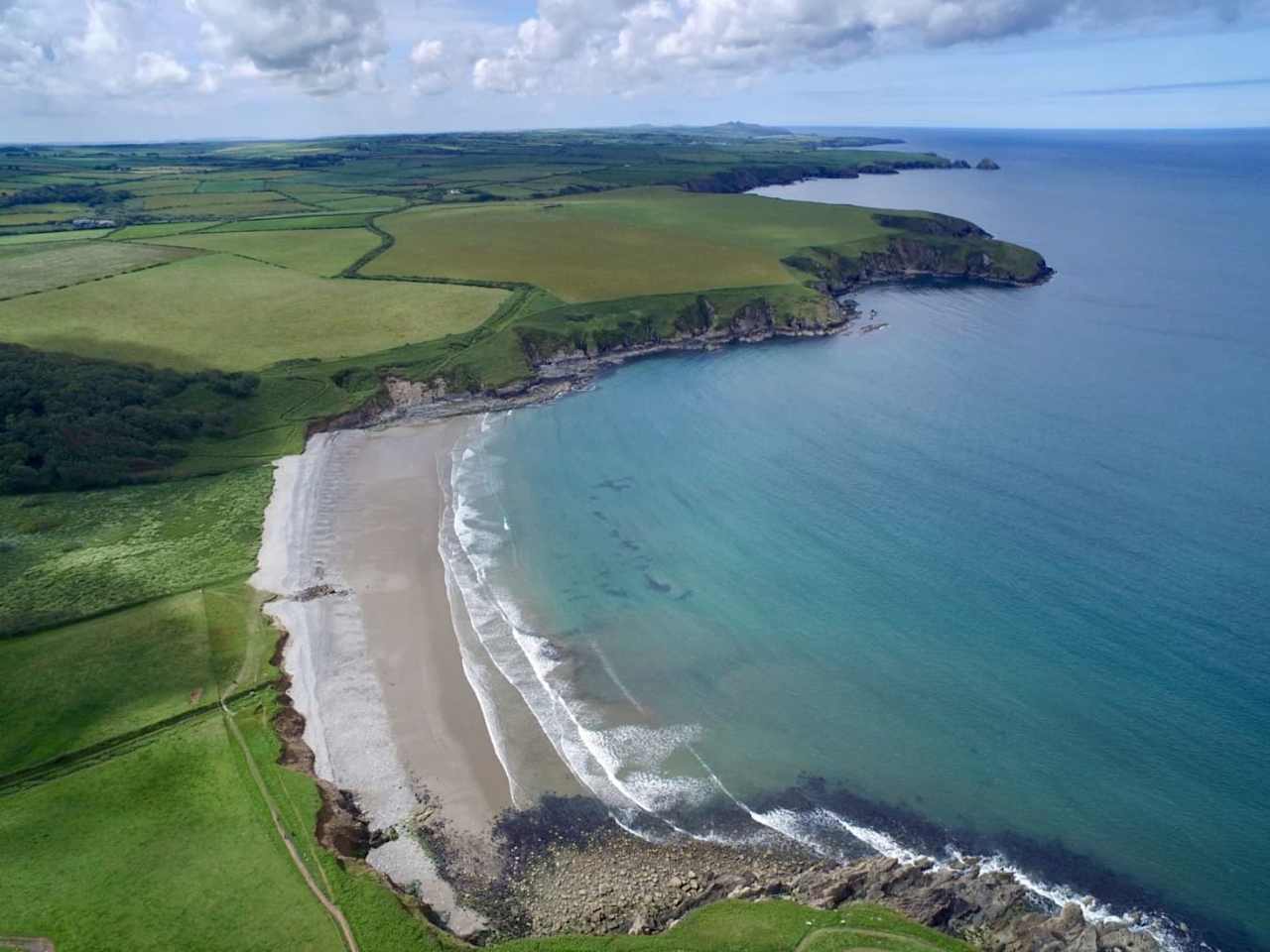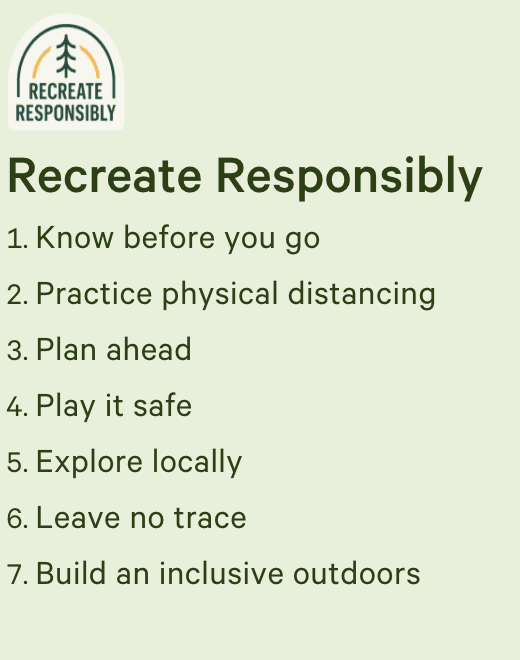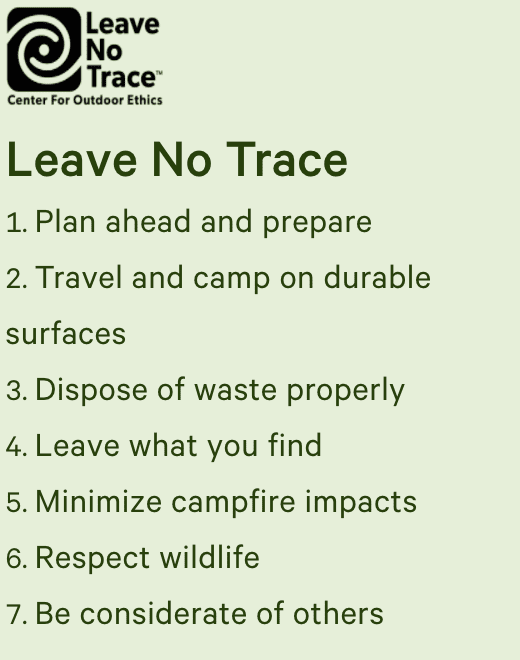Campsites in Pembrokeshire
Blue Flag beaches, coastal footpaths, and seaside villages make Pembrokeshire a West Wales highlight for campers.
- Pembrokeshire
Popular camping styles for Pembrokeshire
Star Hosts in Pembrokeshire
Under £50
12 top campsites in Pembrokeshire
Available this weekend
Dog-friendly getaways


Campsites in Pembrokeshire guide
Overview
Pembrokeshire, the westernmost county in Wales, sits just south of Cardigan Bay and is home to Carew Castle, Saundersfoot, Whitesands Beach, and one of the most beautiful coastal paths in the country. Almost the entire coast is a national park, meaning campers will find a holiday destination with stunning cliffs, mellow coves, and fantastic surfing beaches. Water babies in particular find a lot to love about Pembrokeshire, with its 186 miles of coastline and opportunities for coasteering, surfing, and dolphin-watching, as well as hills, coastal towns and villages, and outlying islands. Home to one of the best beaches in the world, it's no surprise that Pembrokeshire campsites rank among the best in the UK too. The county is replete with full-service camping sites, caravan parks, and glamping yurts with electric hookups, wifi access, and family-friendly facilities. While there are tons of beach campsites, in Pembrokeshire you're never too far from the sea, and you can still make the most of the coast if you prefer to stay inland too: wildflower meadows, working farms, and enchanting woodlands all play host to some of Pembrokeshire’s best camping sites.
Where to go
Pembrokeshire Coast National Park
One of the only coastal national parks in the UK, the Pembrokeshire Coast National Park is a hub for watersports, walking, and stunning views. It also includes almost the entire length of the Pembrokeshire Coast Path, which stretches from St. Dogmaels to Amroth and takes 12 to 14 days to complete, passing by St David’s, Whitesands Bay, Tenby, and Fishguard. When it comes to camping, you’ll be spoilt for choice with dozens of campervan and caravanning sites, seaview campgrounds, and glamping sites dotted throughout the park.
St. David’s and Ramsey Island
Within the bounds of the Pembrokeshire Coast National Park sits the UK’s smallest city, St. David’s, which is home to several caravan parks with electric hookups, glamping grounds, and seaview campsites. Just a boat ride away from craggy Ramsey Island, a nesting place for numerous bird species, St. David’s is also within driving distance of Cardigan Bay and has plenty of hiking trails and watersport options to keep outdoor adventurers busy.
Stackpole
With glamping bell tents, camping, and caravanning options in and around Stackpole, this small village toward the southern extreme of Pembrokeshire is an underrated nature lover’s dream. Home to Stackpole Nature Reserve, wooded valleys, and lily ponds, as well as sandy beaches such as Freshwater West (one of the Welsh filming locations for Harry Potter) and Barafundle Bay, Stackpole makes for an enjoyable Pembrokeshire base from which to explore the wider region.
Preseli Hills
Pembrokeshire isn’t a particularly mountainous area, but it does boast a hilly northern expanse that serves as a refreshing counterpoint to the coastal south and west. The Preseli Hills, from which Ireland is visible on a clear day, is a mystical place where you can pitch your tent in charming campsites or opt for more comfortable caravanning and glamping options in the surroundings.
Romantic camping in Pembrokeshire
If you're looking to get away on a camping holiday for two in Pembrokeshire, look for spots with secluded pitches and glamping accommodations set apart with plenty of space. You might also like to consider taking a mid-week break or a trip outside of the school holiday season, allowing you to exploring Pembrokeshire at the quietest time. Camping and glamping sites tend to be quieter mid-week, so it’s a great time to visit for a romantic getaway with true seclusion. Visiting outside of peak times can also give you the chance to explore popular Pembrokeshire spots with fewer people around, making those awesome walks on the coast even more enjoyable.
Autumn and winter camping and glamping can be really romantic experiences, as cooler weather means you’ll be keen to cosy up around the campfire. It’s also when glamping comes into its own, extending the camping season and offering snug getaways surrounded by nature. There’s not much more romantic than candlelight, campfires, and cosy cabins.
Top things to do while camping in Pembrokeshire
You won’t be short of things to do in Pembrokeshire—in fact, there’s so much going on that you may find it hard to know where to start. To give you a helping hand, we’ve put together this handy list.
1. Walk along the coast
The Pembrokeshire Coast Path runs 186 miles along the entire Pembrokeshire coastline from St Dogmaels in the north to Amroth in the south. You may not want to tackle the whole route while camping in Pembrokeshire, but why not take a picnic and tackle a short section to see some spectacular coastal scenery? It was Wales’ first national trail and falls almost entirely within the Pembrokeshire National Park, giving walkers the chance to see rare wildflowers and wildlife as well as stunning views.
2. Spend the day on the beach
With more than 50 beaches along the Pembrokeshire coast, there’s bound to be one to suit you. If you like quiet beauty and don’t mind a walk, you might like to take the four-kilometre footpath to Barafundle Bay to find out why it’s been voted one of the best beaches in the world countless times.
3. Have a go at coasteering
This combination of climbing, swimming, and cliff jumping was invented in Pembrokeshire, so it’s a great place to give it a go. Open to all over 8 years old, coasteering is an adrenaline-fuelled way to explore the coastline and a great activity for families with older kids and teenagers. A number of qualified and experienced coasteering activity guides can take visiting campers out for a day on the rocks.
4. Take to the water
Pembrokeshire offers plenty of opportunities to indulge in your favourite watersports or even try a new one. Whether you want to paddleboard, surf, kitesurf, or kayak, you’ll find somewhere that will hire out the gear and teach you the ropes.
5. Head for the hills
While enjoying all that lovely coastal scenery, don’t forget about the inland beauty of the Preseli Hills. You’ll find yourself far from the crowds if you take a hike or go for a run across heather moorland on one of the many well-marked walking trails here. It’s worth making your way to Foel Eryr and some of the higher peaks for panoramic views, and you may just spot some reminders of Bronze Age and Iron Age settlements along the way.
6. Visit the UK's smallest city
It won’t take long to explore the city of St David's, as it is such a teeny, tiny place. Named after the patron saint of Wales, it has a population smaller than many villages at just 1,600! It was awarded city status in 1995 thanks to the fact that it has its own cathedral, a 12th-century site that has been attracting pilgrims since it was built.
7. Go kayaking (with a pair of binoculars)
The Daugleddau Estuary in the middle of the Pembrokeshire Coast National Park is at the confluence of four rivers. It’s known as a great spot for birdwatching and a lovely place for a paddle in a kayak—so why not combine the two? This quiet way to ply the waterways leaves wildlife undisturbed, so it’s a great way to get up close to some of the interesting birds.
8. Cruise out to sea
More wildlife watching opportunities can be found by taking a boat trip out to sea. All along the coast, outfitters offer wildlife cruises to see seals, dolphins, and porpoises. Book a trip to get a closer look at the populations of seabirds who make their home on Pembrokeshire’s cliffs, and if you’re really lucky, you might just catch sight of a blue whale.
9. Visit a wild Welsh island
The islands of this stretch of wild Welsh coastline are a haven for wildlife—and heaven for wildlife watchers. Head for Skomer Island, just a mile off the Pembrokeshire coast, to see the resident population of puffins and seals, or take a trip to Ramsey Island, an RSPB reserve recognised as one of the best places in the UK to see wildlife. It is home to shearwaters, guillemots, and choughs, among others.
10. Explore seaside Tenby
The quaint town of Tenby is one of Pembrokeshire’s best-known and best-loved towns—its town walls surround cobbled streets that will have you reaching for the camera at every turn. Check out the historic harbour, head to a choice of three sandy beaches, then explore the tea rooms, cafes, pubs, and gift shops within Tenby's historic heart.







